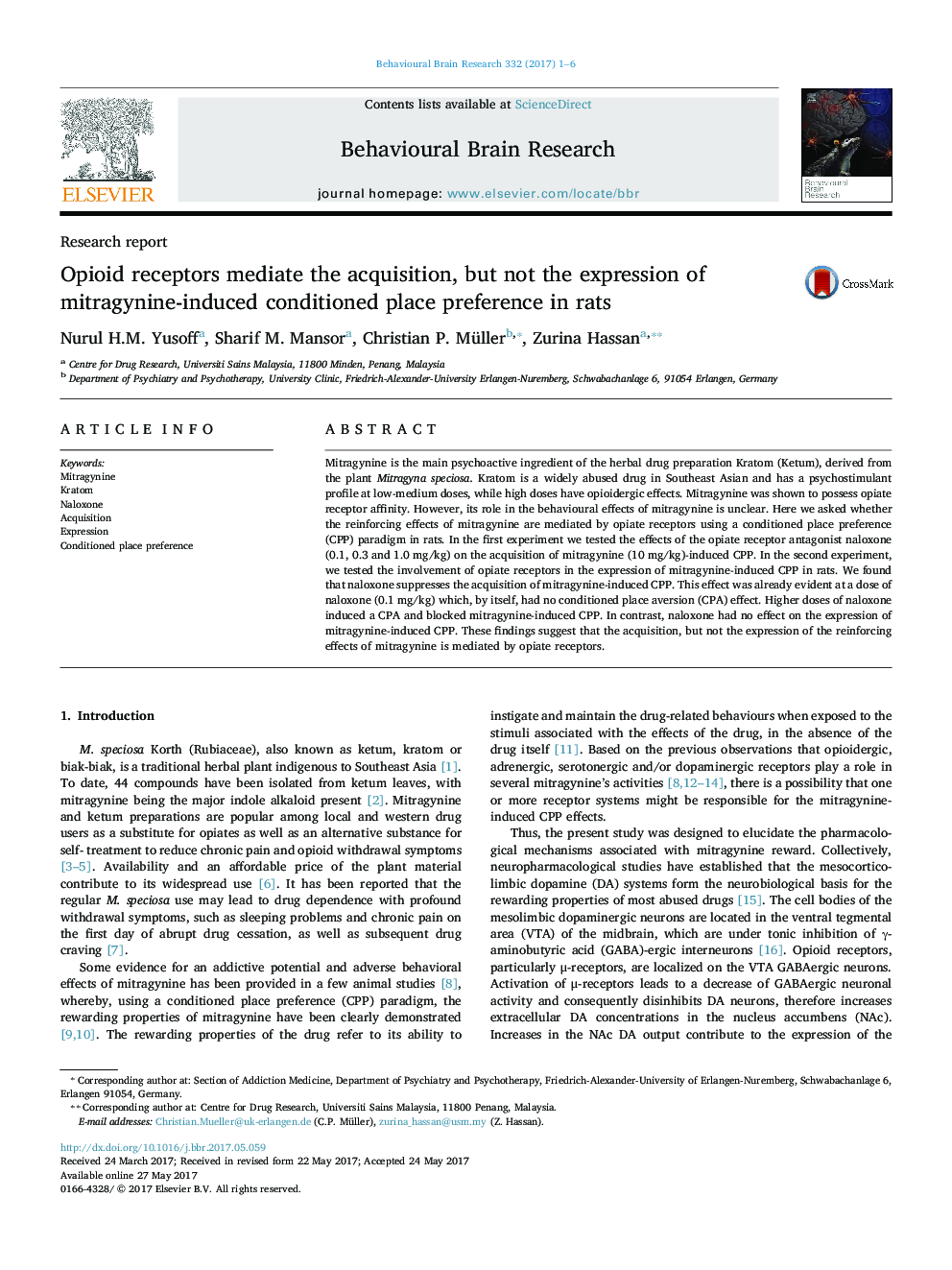| کد مقاله | کد نشریه | سال انتشار | مقاله انگلیسی | نسخه تمام متن |
|---|---|---|---|---|
| 5735099 | 1612903 | 2017 | 6 صفحه PDF | دانلود رایگان |
عنوان انگلیسی مقاله ISI
Opioid receptors mediate the acquisition, but not the expression of mitragynine-induced conditioned place preference in rats
ترجمه فارسی عنوان
گیرنده های اپیوئید در حقیقت جذب می شوند، اما بیان ترجیح مکان های موقت ناشی از میترگینین در موش صحرایی
دانلود مقاله + سفارش ترجمه
دانلود مقاله ISI انگلیسی
رایگان برای ایرانیان
کلمات کلیدی
موضوعات مرتبط
علوم زیستی و بیوفناوری
علم عصب شناسی
علوم اعصاب رفتاری
چکیده انگلیسی
Mitragynine is the main psychoactive ingredient of the herbal drug preparation Kratom (Ketum), derived from the plant Mitragyna speciosa. Kratom is a widely abused drug in Southeast Asian and has a psychostimulant profile at low-medium doses, while high doses have opioidergic effects. Mitragynine was shown to possess opiate receptor affinity. However, its role in the behavioural effects of mitragynine is unclear. Here we asked whether the reinforcing effects of mitragynine are mediated by opiate receptors using a conditioned place preference (CPP) paradigm in rats. In the first experiment we tested the effects of the opiate receptor antagonist naloxone (0.1, 0.3 and 1.0Â mg/kg) on the acquisition of mitragynine (10Â mg/kg)-induced CPP. In the second experiment, we tested the involvement of opiate receptors in the expression of mitragynine-induced CPP in rats. We found that naloxone suppresses the acquisition of mitragynine-induced CPP. This effect was already evident at a dose of naloxone (0.1Â mg/kg) which, by itself, had no conditioned place aversion (CPA) effect. Higher doses of naloxone induced a CPA and blocked mitragynine-induced CPP. In contrast, naloxone had no effect on the expression of mitragynine-induced CPP. These findings suggest that the acquisition, but not the expression of the reinforcing effects of mitragynine is mediated by opiate receptors.
ناشر
Database: Elsevier - ScienceDirect (ساینس دایرکت)
Journal: Behavioural Brain Research - Volume 332, 14 August 2017, Pages 1-6
Journal: Behavioural Brain Research - Volume 332, 14 August 2017, Pages 1-6
نویسندگان
Nurul H.M. Yusoff, Sharif M. Mansor, Christian P. Müller, Zurina Hassan,
